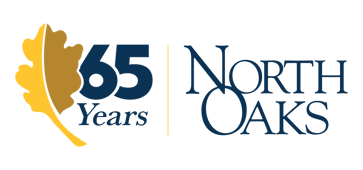COVID-19 Survivor Reclaims her Independence at North Oaks Rehabilitation Hospital
- Category: In The News, Patient Stories, Coronavirus
- Posted On:
- Written By: Melanie Lanaux Zaffuto

When Lynnette Territo’s grandson Vincent Jones, a sergeant in the U.S. Army, learned back in May that she faced the very real possibility of succumbing to COVID-19, he steadfastly believed that his beloved grandmother would confront and overcome this obstacle much as she had the many other challenges faced during her life.
“My daughters Michelle “Chelly” Beard and Stephanie Jones were crying, and they told him I was dying, and he said, ‘You need to stop,’” Lynnette recalls.
Vincent was adamant that his grandmother was “stubborn and going to be OK.”
At the time, the young man’s optimism seemed to contradict the reality of her condition, but he was ultimately proven correct.
A licensed respiratory therapist by trade, Lynnette was diagnosed with COVID-19 during the early stages of the pandemic just as it began to manifest itself in Southeast Louisiana.
Lynnette, who lives in Baton Rouge with Chelly, received her COVID-19 diagnosis April 10 and hoped to convalesce at home.
“On April 12, my symptoms worsened, and my provider prescribed hydroxychloroquine,” Lynnette relates. “Two days later, I was admitted to a Baton Rouge hospital with a fever of 103° F and on oxygen, but they thought I would be OK.”
By April 17, Lynnette’s condition had deteriorated considerably, and she was placed on a ventilator. Although she was removed from the ventilator by April 30, her medical team advised her family that her outlook was grim and that they should begin making “arrangements,” or, at the very least, expect years of nursing home care with little hope of meaningful recovery.
No longer in need of critical care but left profoundly debilitated mentally and physically, Lynnette’s family decided to transfer her to a Hammond-area long-term acute care facility, also known as an LTAC, to continue her recovery.
“I had gotten to the point where I could feed myself, but COVID-19 had left me very childlike mentally,” Lynnette explains.
After about a month, Lynnette’s condition had improved enough for her to meet admission criteria for short-term, inpatient rehabilitation. With the desire and ability to benefit from a minimum of three hours of daily occupational, physical and speech therapy, Lynnette was transferred to North Oaks Rehabilitation Hospital in Hammond to work toward reclaiming her independence.
Much like the patients they strive to help, the North Oaks team had worked to adapt to the obstacles of the COVID-19 environment. Infection prevention measures and universal precautions, including the use of masks and other personal protective equipment, were in full force for the protection of patients and staff alike.
Beyond that, a solarium was transformed into an additional gym overlooking a beautiful garden so that recovering COVID-19 patients like Lynnette could continue to receive therapy separate and apart from patients without the virus. Because of the state mandate limiting visitation, team meetings with patients and their families to discuss treatment, progress, goal-setting and discharge planning were conducted via phone calls and FaceTime instead of face-to-face.
Brooke Self, an occupational therapist with North Oaks, recalls the day Lynnette arrived. She was extremely deconditioned and could not even stand on her own without a two-person assist. She was weak both physically and mentally and struggling to stay balanced and endure activity.
“That was a Friday,” remembers Lynnette, “On the following Monday, I walked 10 feet! My therapy team was amazed. They told my daughters I was doing better than they had hoped.”
During her two-week stay at North Oaks Rehabilitation Hospital, Lynnette continued to build on that initial burst of confidence.
“On June 5, I couldn’t walk. I couldn’t do anything,” said Lynnette. “But by June 19, I was using a walker to get around, and I could shower without assistance, brush my teeth and wash my face!”
Even though visitation was restricted, Lynnette’s daughters were still able to participate in her care and help their mother celebrate goals met. Thanks to FaceTime, her daughters were able to see the gains she was making, like using adaptive equipment and even taking her first steps in months!
Physical Therapist Ana Penton notes, “Aside from regaining the ability to walk, one of Lynnette’s greatest achievements was being able to get herself in and out of bed. This required core training, lower extremity strengthening and problem-solving. Lynnette and her daughter worked together via FaceTime to figure out how they could adjust her mattress at home to a height that she could manage so that this skill would transfer to her home environment.”
In addition to knowledge and professionalism, Lynnette credits the North Oaks Rehabilitation Hospital staff with taking the time to personalize her very own unique path to recovery.
“They would all come in one-by-one and talk to me about what their goals for me were,” said Lynnette. “When I surpassed those, they would encourage me to think of more goals!”
Most importantly, North Oaks staff asked Lynnette to identify specific things she wanted to achieve during her recovery.
“I wanted to be able to walk with a walker, to be able to transfer myself from one surface to another and set my house up so that I could care for myself,” said Lynnette.
While Lynnette’s story is inspiring in itself, it is made even more remarkable by the fact that she already lives with complications from Muscular Dystrophy (MD). But even this challenge was met with specialized instruction and therapy from the North Oaks team.
“The therapy team had to take into account that she could not participate in exercise to the point of fatigue due to her muscular dystrophy,” recounts Physiatrist D’Wan Carpenter, MD, adding that in addition to helping Lynnette overcome the residual effects of COVID-19, they also were able to fit her for a new pair of ankle-foot orthotics to further assist her recovery. (Due to significant weight loss caused by the virus and months of hospitalization, her old braces no longer fit properly.)
If the physical toll of COVID-19 were not enough, Lynnette attests to the terrible mental stress the virus inflicts upon its victims. With speech therapy, however, even this aspect of the virus’ toll on her was met with positive results.
“I can’t say enough about my speech therapist, Don Dubret,” Lynnette asserts. “He incorporated a lot of my therapy into conversation. It was therapy without seeming like therapy, and with his help, my ability to retain knowledge improved from 25% to 95%!”
Dubret elaborates, “I incorporated a lot of variety into Mrs. Lynnette’s treatment. Of course, structured language and cognition exercises were used. But, I found that building a rapport with her led to more shared conversations. I was able to tap in to her natural responses to our conversations. This helped me better address her language and cognition issues in such a way that did not seem clinical to her.”
Despite a challenging and sometimes grueling recovery, Lynnette looks forward to a future focused on a supportive and expanding family.




